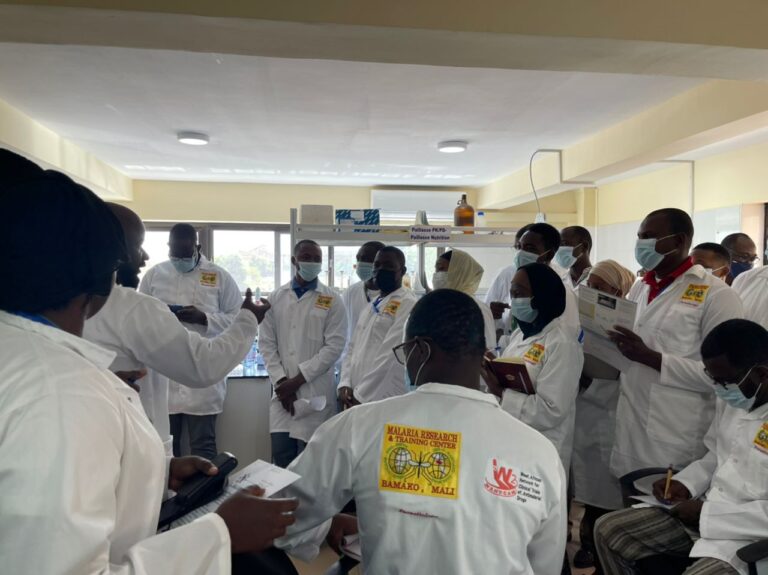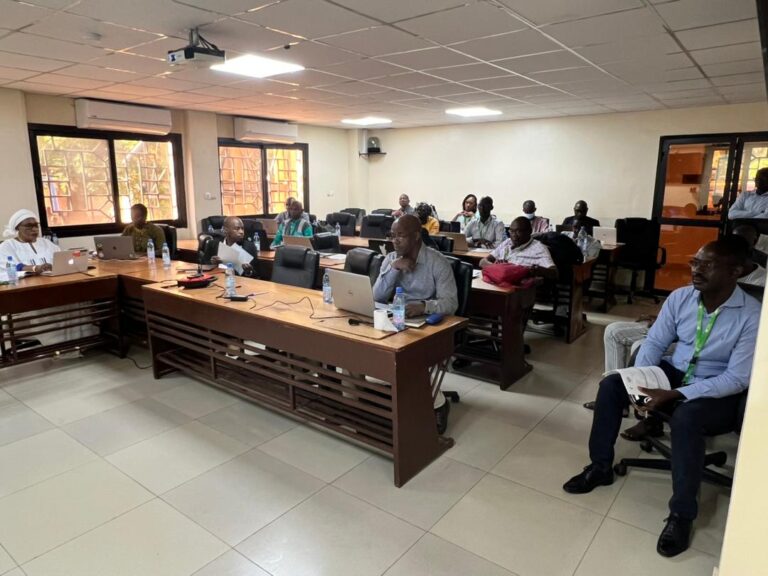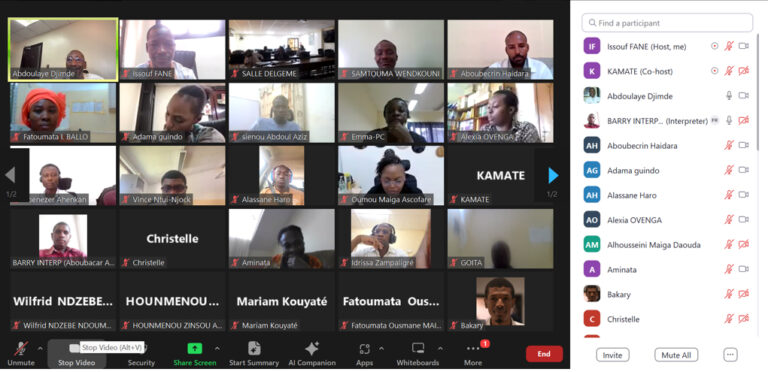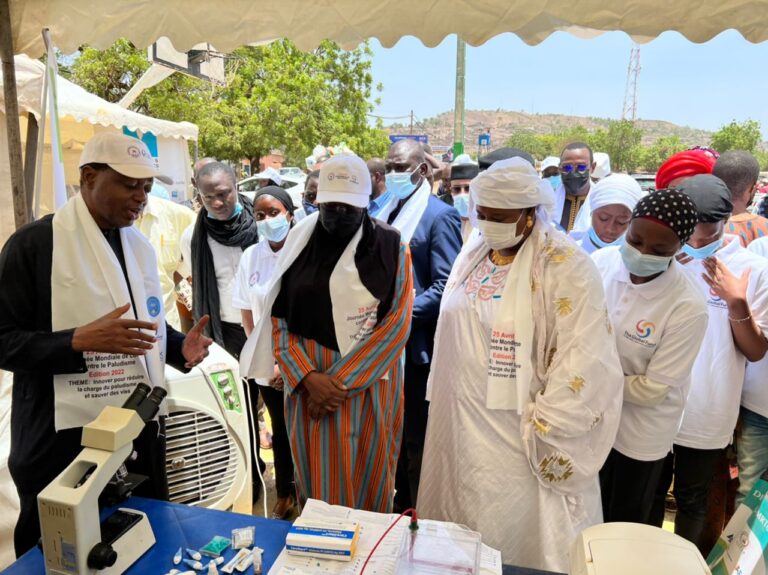
New Orleans, 15 November 2024 – The West African Network for Clinical Trials of Antimalarial Drugs (WANECAM2) consortium is pleased to announce positive results from the Phase 2b KALUMI study of the novel, non-artemisinin drug ganaplacide combined with a new once-daily formulation of lumefantrine. KALUMI is a Phase 2 randomized, open-label, non-inferiority study evaluating the efficacy and safety of a ganaplacide-lumefantrine solid dispersion formulation given once daily for three days with food, compared with artemether-lumefantrine, in children between the ages of 6 months to 12 years with acute uncomplicated malaria.
The results are being presented at the American Society of Tropical Medicine and Hygiene (ASTMH) annual meeting in New Orleans this week.
The KALUMI results confirm the findings of an earlier successful Phase 2b trial. KALUMI provides important data for ganaplacide-lumefantrine in children aged between 2 years and 6 months for the first time and uses the same dose and regimen that is now being studied in the Phase 3 KALUMA trial of ganaplacide-lumefantrine. Results from KALUMA are expected in 2025.
The study, which was conducted in Burkina Faso, Mali, Gabon, Democratic Republic of Congo (DRC) and Côte d’Ivoire, met its primary objective of demonstrating the non-inferiority of ganaplacide-lumefantrine to artemether-lumefantrine on PCR-corrected adequate clinical and parasitological response (ACPR) at Day 29. The group of 110 patients treated with ganaplacide-lumefantrine and the group of 110 patients treated with artemether-lumefantrine both achieved a success rate of 99% at Day 29.
“We are very pleased to see the positive results from the KALUMI study of the ganaplacide-lumefantrine combination in children with malaria, which confirm the earlier results of the earlier Phase 2 study[1],” said WANECAM2 coordinator and Calestous Juma Science Leadership Fellow, Prof. Abdoulaye Djimde. “Reports of emerging resistance from parasites to artemisinin, which is the core compound of the best available medicines to treat malaria, mean it is essential to accelerate the development of the next generation of treatments. Importantly, this new combination is administered only once per day, compared to the twice-daily dose of artemether-lumefantrine, which we hope will drive greater adherence to treatment.”
The study was led by Novartis, with scientific and financial support from Medicines for Malaria Venture (MMV) and their donors, in collaboration with WANECAM2, which is funded by the European & Developing Countries Clinical Trials Partnership (EDCTP).
“The KALUMI results are encouraging as we continue to recruit for our Phase 3 KALUMA trial of ganaplacide-lumefantrine,” said Novartis Global Program Head for Malaria, Caroline Boulton. “They are also a great testament to the work of the WANECAM2 consortium – we are privileged to work with such talented and driven African scientists in our clinical trials across the continent.”
“EDCTP congratulates the WANECAM2 consortium on the development of a novel antimalarial combination that will help to save the lives of young children in malaria-endemic areas,” said Montserrat Blázquez-Domingo, Senior Project Officer at EDCTP.
Dr Wiweka Kaszubska from MMV emphasized, “The success of this study underscores the incredible strength and impact of research and development partnerships. With the growing threat of antimalarial drug resistance, such collaborations are more crucial than ever. We eagerly anticipate the results of the Phase 3 study, which could bring us one step closer to an important new tool in the fight against malaria.”
The adverse event profile of ganaplacide-lumefantrine was consistent with that observed previously and as expected in patients with malaria. No deaths or drug-related serious adverse events were reported in the ganaplacide-lumefantrine treatment arm, although a higher incidence of vomiting was observed amongst the youngest patients in the ganaplacide-lumefantrine group receiving the Phase 2 formulation.
Malaria remains a significant global health burden, taking 608,000 lives in 2023, most of whom were young children in Africa.
ENDS
Notes for editors
Ganaplacide, discovered at the Novartis Institute for Tropical Disease (now called Novartis Biomedical Research), is the result of a Wellcome Trust, Medicines for Malaria Venture and Singapore Economic Development Board supported joint research programme with the Novartis Institute for Tropical Diseases, the Genomics Institute of the Novartis Research Foundation, and the Swiss TPH.
The WANECAM2 consortium is financially supported by the European and Developing Countries Clinical Trials Partnership (EDCTP2 Programme), supported by the European Union, the Deutsches Zentrum für Luft- und Raumfahrt e. V. (DLR) and the UK Department for Health and Social Care (UK DHSC). The research program aimed to discover and develop the next generation of antimalarial drugs.






